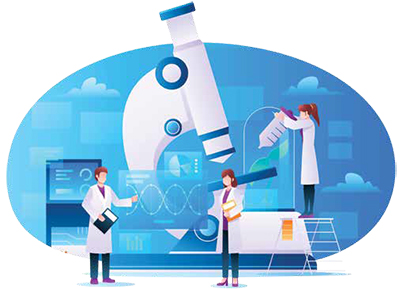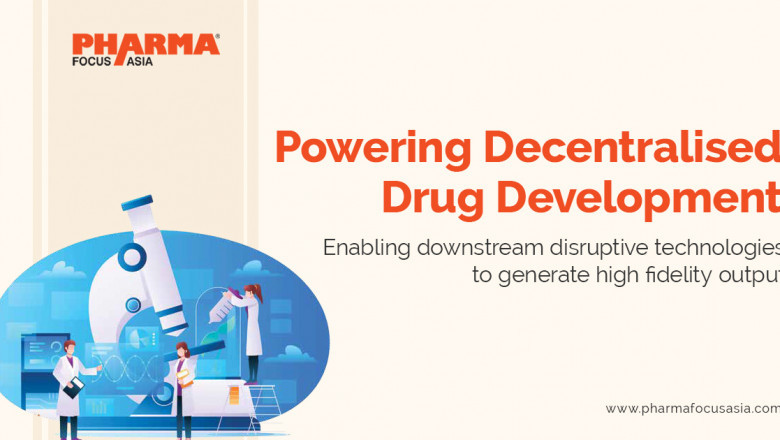views
Decentralised clinical trials are the latest and rapidly growing trend in conducting clinical trials through leveraging improved disruptive digital technologies and remote data collection methods. Blockchain oracle is the keystone technology, upstream from disruptive technologies such as machine learning (ML) and artificial intelligence (AI), that can significantly enable and enhance decentralised clinical trials' efficiency, transparency, and security.

The Decentralised Drug Development (DDD) process involves coordinating various vendors and pulling together contract research organisations (CRO) to operate seamlessly to achieve developmental milestones from conception to market. Currently, there are inefficient legacy technologies and non-digital methods used together during pre-clinical drug development to meet the Investigational New Drug application requirements set by the Federal Drug Administration (FDA). However, the scrutiny of drug candidates' toxicity and efficacy in humans during its clinical trial is becoming more intensive as data fidelity, security, and data/information immunity are critical attributes required for the FDA’s final approval. Recently, during human clinical trials, the evolution of moving away from centralised to decentralised developments is a means to eliminate bottleneck restraints and delays, as the decentralised method allows flexibility in patient recruitment and could reflect a much better geographical representation of a diverse patient background. For instance, for rare disease drug development, this could facilitate the trial’s ability to collect as many patients in the shortest amount of time possible as there is no geographical barrier. In this article, I will focus on the discussion of Decentralised Clinical Trials (DCT) and how these most expensive and often the least efficient phases of drug development could get a turbo boost from implementing disruptive technologies. This discussion will further focus on the requirements of the Blockchain Oracle (BO) and how it could power the rest of the blockchain architecture and provide high fidelity and immutable data collection for ML and AI training.
Running a DCT involves conducting a clinical trial with the use of digital technology, remote devices, and customised approaches for data gathering, participant monitoring, and trial process management. DCTs offer several advantages, such as increased patient participation and reduced logistical burdens as opposed to centralised trials. Here is an outline of key steps for running a decentralised clinical trial:
1: Define your trial’s questions and objectives. It is also very important to develop a detailed clinical trial protocol that outlines the study design, inclusion/exclusion criteria, endpoints, and data collection methods;
2 Upon submission of an Investigational New Drug (IND) application or Investigational Device Exemption (IDE), continue to establish close communication with the regulatory agency (i.e. FDA in the United States) to make sure your proposed DCT execution complies with local regulatory requirements;
3: Pick and choose and adopt technology that can digital tools for data collection, information transfer, patient recruitment, and monitoring. Automating and integrating electronic informed consent (eConsent), wearable devices, mobile apps, and telehealth platforms;
4: Recruit and screen participants remotely via digital communications, advertising and online platforms to recruit patients that accurately meet the study criteria;
5 To facilitate and make a decentralised trial workable, eConsent procedures needed to be put in place to validate participants’ consents were informed. Most importantly, participants need to be aware that throughout the study, their consent can be given electronically.
6 Use a real-time monitoring system to track patient progress and safety remotely. Data can be detected and collected remotely using digital tools, wearables, and patient self-reported outcomes;
7 In addition, maintain regular and informed communications with participants to keep them engaged and prevent participant dropout;
8 In the event of an adverse event, establish a procedure and system that participants can immediately notify relevant authorities;
9 In site-less trial management, coordinate trial activities, data collection, and patient interactions remotely. Define various decentralised trial platforms or clinical trial management systems (CTMS) for centralised control
Explore more: https://www.pharmafocusasia.com/research-development/powering-decentralised-drug-development






















Comments
0 comment